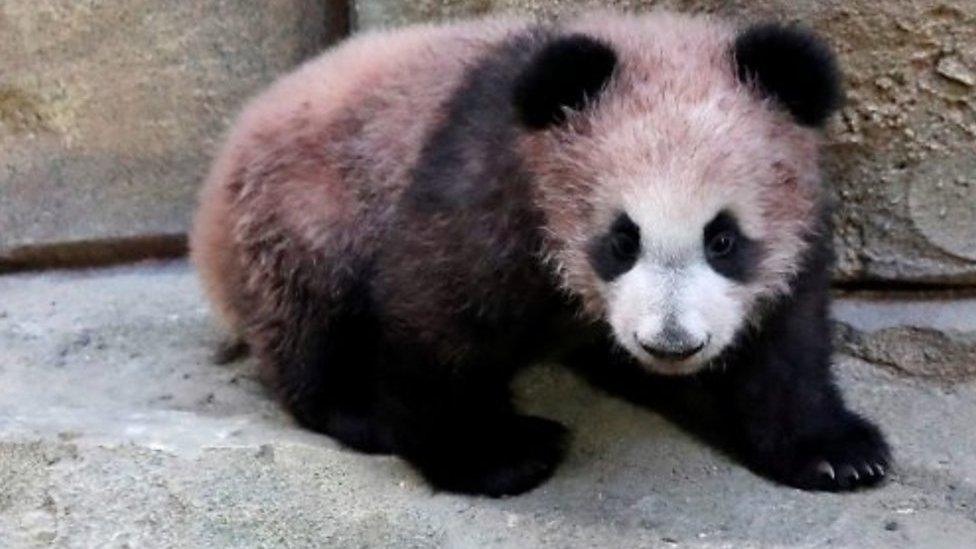Panda cubs are born at Berlin Zoo
- Published
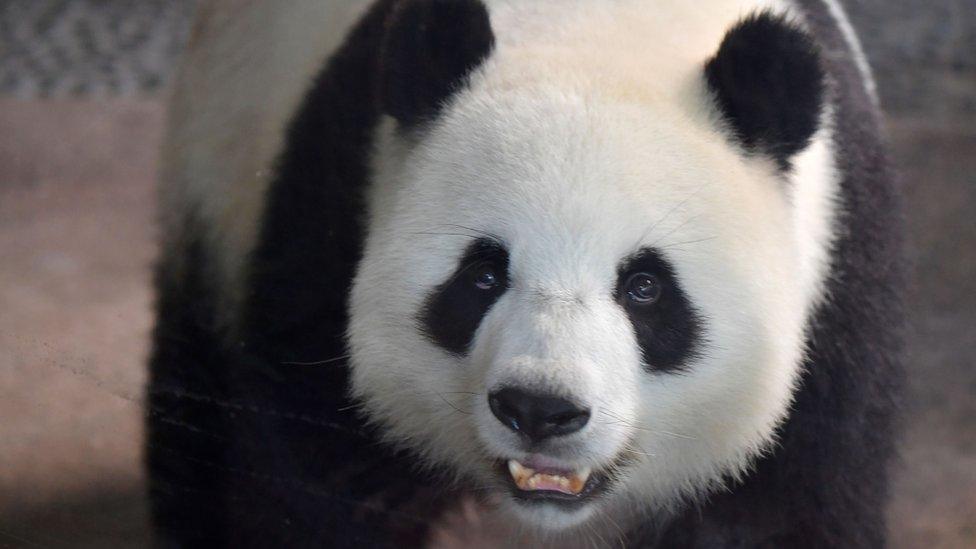
Berlin zoo is celebrating after its resident panda became a mum and gave birth to twins.
The zoo tweeted: "Meng Meng the panda is a mom," adding they were "speechless."
A video shows Meng Meng guiding one of her tiny pink babies to feed.
It's extremely difficult and rare to breed pandas in captivity; there are just over 400 living in zoos around the world, in conservation projects set up with China.
Allow X content?
This article contains content provided by X. We ask for your permission before anything is loaded, as they may be using cookies and other technologies. You may want to read X’s cookie policy, external and privacy policy, external before accepting. To view this content choose ‘accept and continue’.

It's the first time pandas have been born in Berlin and the zoo says the panda delivered its first cub on Saturday evening.
About an hour later, a second baby was born.
The zoo described the past few weeks as "tense and exciting".
Zoo director Andreas Knieriem says, "Meng Meng and her two cubs coped well with the birth and are all in good health."
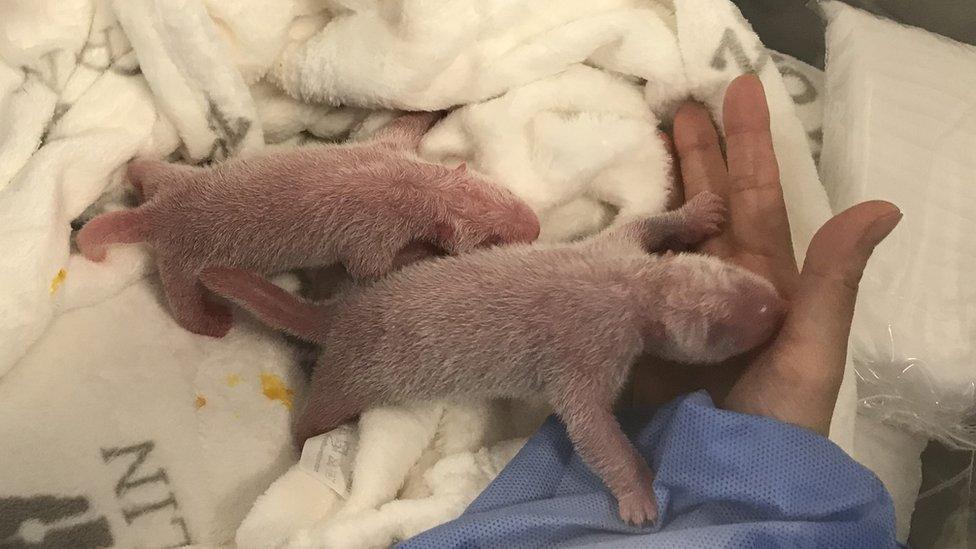
The cubs were born on Saturday night
If you're imagining fluffy cute little bears - you'd be wrong.
When panda cubs are born they are pink, with their fine white down and really long tails - they look nothing like an adult black and white bear.
We don't know the sex of the babies but the zoo said the two cubs weighed in at 136 and 186 grams.
Dr Andreas Knieriem adds, "even though these are the first offspring born to our young female panda, she is already doing a wonderful job as a mum.
"In the beginning, the young have to feed roughly every two to three hours and are dependent on the body heat of their mother to keep warm."
Parents Meng Meng and male Jiao Qing are on loan from China - they arrived in Berlin in June 2017.
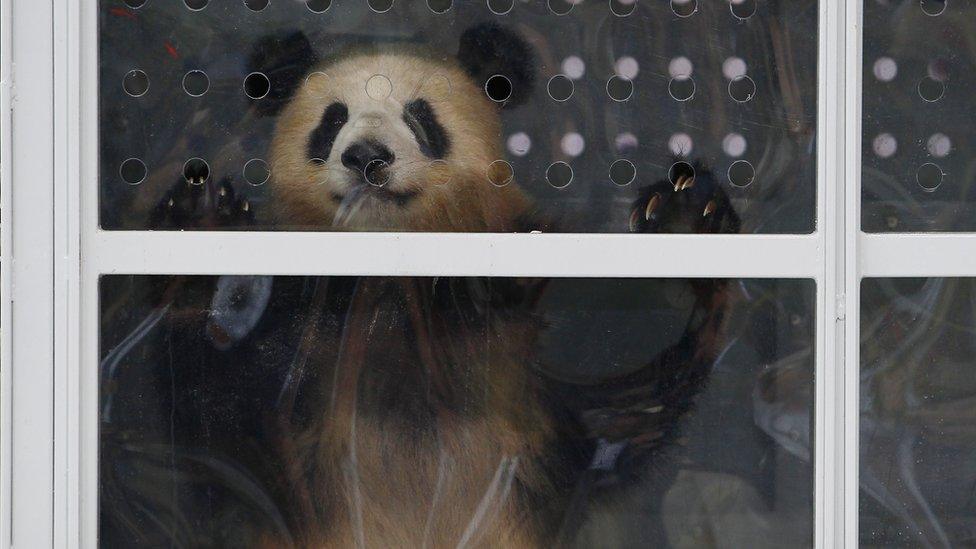
Jiao Qing arrived with Meng Meng from China in June 2017
China has given around a dozen panda to countries as a symbol of close relations.
Berlin zoo pays $15 million (£12.4 million) for a 15-year contract to look after them, with most of the money going towards a conservation and breeding research programme in China.
Even though the cubs were born in Berlin, they remain Chinese and must be returned to China within four years after they have been weaned.
About 1,864 pandas remain in the wild in China, up from around 1,000 in the late 1970s, according to the environmental group WWF.
The zoo says for now new panda family will be staying behind the scenes and will not be on view to zoo visitors until further notice.
But for dad, Jiao Qing, life goes on as normal.


Follow Newsbeat on Instagram, external, Facebook, external, Twitter, external and YouTube, external.
Listen to Newsbeat live at 12:45 and 17:45 weekdays - or listen back here.
- Published24 June 2017
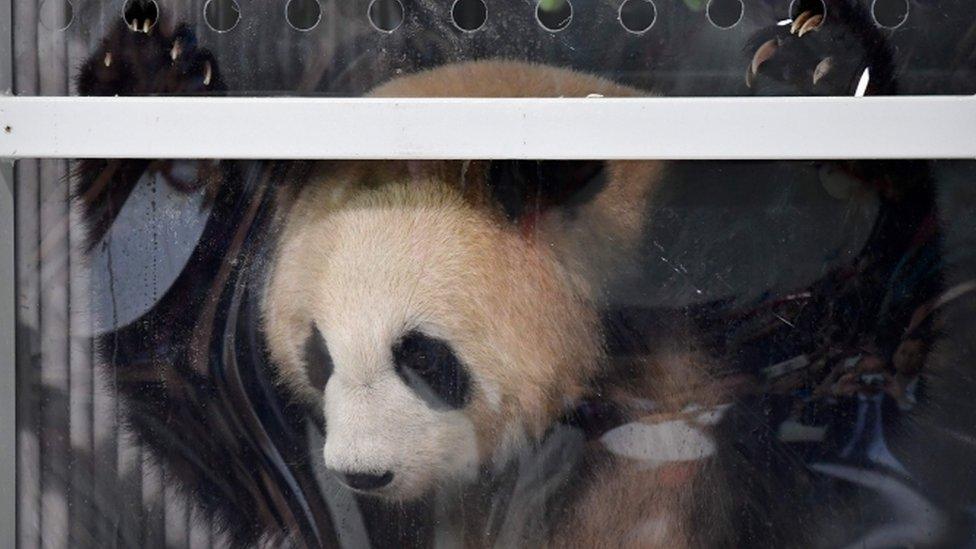
- Published13 January 2018
